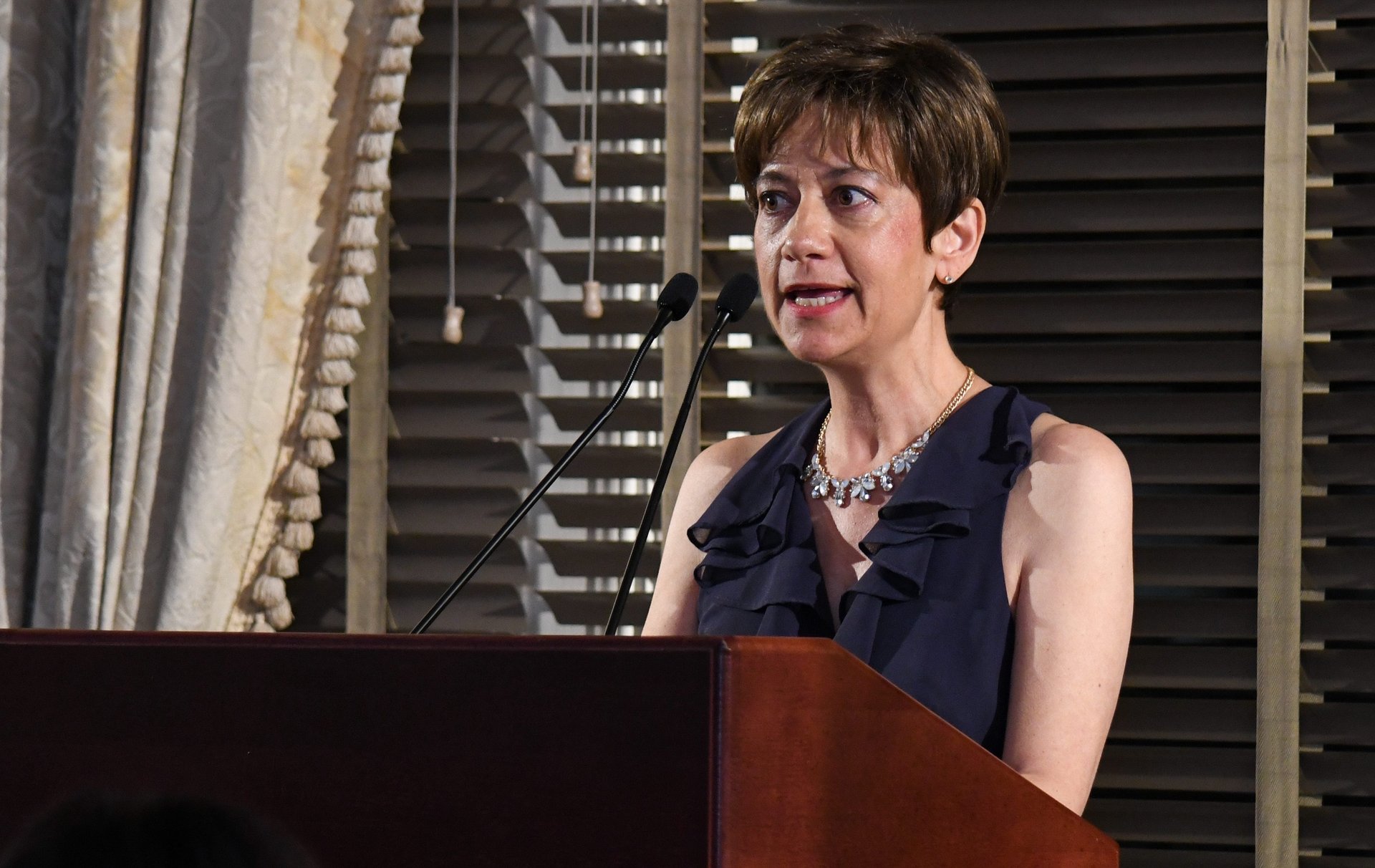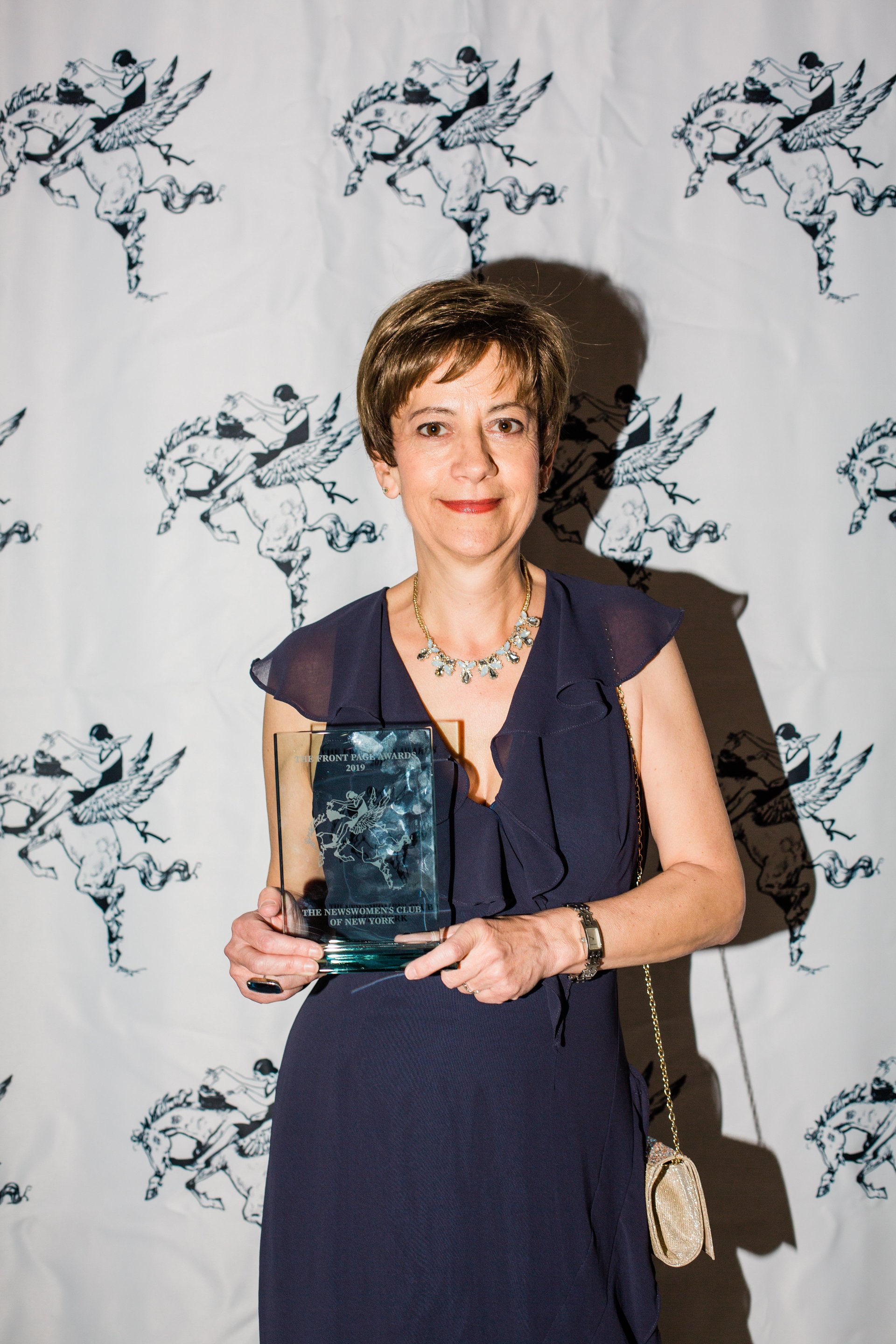Remembering Xana Antunes, our singular colleague and friend
Few people have had as much impact on the practice of financial journalism in the US as Xana Antunes. She did so quietly, leading newsrooms at CNBC, Crain’s New York Business, Fortune, the New York Post, and Quartz, putting journalists out in front and making it possible for them to do their best work.


Few people have had as much impact on the practice of financial journalism in the US as Xana Antunes. She did so quietly, leading newsrooms at CNBC, Crain’s New York Business, Fortune, the New York Post, and Quartz, putting journalists out in front and making it possible for them to do their best work.
Xana joined Quartz in December 2014 as editor for new initiatives, and served as executive editor since 2016. She led many of the most important newsroom initiatives, including Quartz’s expansion into video and membership offerings, and played a central role in nearly all of the newsroom hiring and ambitious journalism. We’re deeply saddened by her passing on Jan. 27, close to three years after an initial diagnosis of pancreatic cancer. She is survived by her husband Scott and daughter Elisabeth, and leaves behind countless people who know her as a friend and mentor.

A dual Scottish-Portuguese national, Xana (pronounced “Sh-anna”) came to the US in the 1990s as a correspondent for the Independent. She joined the New York Post, and still early in her career became its editor, managing a newsroom of over 300 people and, as one observer put it, making “one of the raciest tabloids in America as intellectually clever as Spy Magazine.” As executive editor of Fortune, she was responsible for traditionally magazine-y things such as the front section and Fortune’s tech coverage, and then saw the potential in digital and led its efforts there. She transformed Crain’s New York Business from a weekly publication into a daily news and data publisher; it won 64 national journalism awards during her tenure as editor. As executive editor at CNBC, she led the charge to make it truly multi-platform. Readership of CNBC.com hit record levels, and online video viewership soared, rising 70% in the last year she was there.
In April 2012, as we were starting to hire for Quartz, an editor friend suggested that I reach out to Xana. He wrote: “I hold her in very high regard. She has a terrific news sense, is smart, and knows the world… she has the intellectual chops but is equally not one to stand for any nonsense.”
This was all true. What I came to appreciate even more since working with Xana was how she pushed herself and the journalists around her to engage directly with the challenges in front of them, and to succeed at the work that might otherwise have felt out of reach. In each news organization, Xana ran toward the uncharted and complicated areas that her peers were wary of. She ran toward the future.
“Xana was the soul of our newsroom,” wrote Quartz CEO Zach Seward in a memo to staff today:
Any new and exciting initiative at Quartz since she started here in 2014 likely had Xana’s imprint on it. Her official duties as executive editor included oversight of the talent lab, video, membership, R&D, special projects, and Ideas. She was also Quartz’s chief problem-solver, helping reporters and editors through their biggest challenges, from feature stories in need of reworking to career paths in search of a new direction. There was rarely an issue that couldn’t be addressed by a long and heartfelt conversation with Xana.
At Quartz, Xana built lots of things, including a world-class team of video journalists whose work won a Loeb Award, arguably the most prestigious prize in business journalism. She founded the talent lab, responsible for the recruiting and skills development of Quartz’s newsroom. And she created the membership editorial team, developing a new offering for Quartz’s most loyal readers.
Quartz’s newsroom is about 65% female—the inverse of the ratio at many traditional newsrooms—and Xana was a leading driver of that.
The Newswomen’s Club of New York recently recognized Xana with its lifetime achievement award. In her acceptance speech, Xana said:
When I was 15, I had my first and only meeting with our school’s guidance counselor, and she asked me what I wanted to do when I finished school. And I said, “Oh, I want to be a journalist.” And she said, “Oh no, that’s ridiculous. Why don’t you think about teaching or nursing?” It was by no means the first time or the last time that I and thousands of women have been brought short by low expectations….But low expectations, it turned out, also had an upside because the cost of failure was negligible. I could just try anything and then just be completely shocked when I succeeded. And that really has been the story of my career.
Numerous reporters have told me that Xana believed that they could do something difficult—like taking on a column or their first management role—well before they themselves did, and that it changed their career forever.
Gwynn Guilford, a senior reporter at Quartz, says Xana encouraged her “to take risks that force me to grow.” Gwynn tells a story of how she was researching declines in life expectancy and stumbled upon troubling data for central Appalachia. She pulled Xana into a conference room, and before Gwynn finished explaining, Xana cracked open her laptop. “How about you head there on Sunday, the 7th?” she asked, scrolling through flights to West Virginia. It was late on Thursday, the 4th. Gwynn says what seemed to be impulsiveness paid off: the reporting she did in West Virginia led to one of the most important pieces of her career.
Xana’s directness and high standards are noteworthy. She had an amazing way of getting people to agree with her critique of their work. She might say, “This is pretty much crap, isn’t it?” ”Yes, yes you’re right, it is pretty much crap,” we had to respond—because she was usually right. Another classic Xana response, to a not-fully-cooked idea, was “I won’t tell you no right away.”
Xana, for sure, was human despite her superhuman achievements. As far as Quartz’s staff could tell, she ate all of her meals from Pret a Manger. She had zero apparent control over her cat Mitzi, who sat in front of her laptop camera when she dialed into videoconferences from home. She was such a maker of lists to organize her work that I suspected she had lists of her lists. She was prone to get so involved in a conversation that she invariably lost all sense of time and what meeting her colleagues could conceivably be awaiting her arrival at.
After her diagnosis, and even amid grueling years of treatments, Xana asked that we not treat her any differently. She preferred to be known as a newsroom leader or a journalist rather than as a cancer patient. She decided that her health issues wouldn’t slow her down and said she had the life she wanted, and so she wasn’t interested in retreating from that before she absolutely had to. Xana was so loyal to Quartz and its staff that she held videoconference check-ins with team leaders and shared job candidates until the very end. She was honest about the challenges she faced, but was so strong and unwilling to give in. I aspire to handle things the same way.
I learned something from Xana just about every day that I worked with her. Her mentorship was strong and generous and open-minded. As Gwynn has said: “Instead of shaping us in the image of organizations she’s led before, Xana has taught us to be bold and confident in finding our own way of doing things.”
Xana’s approach was high on ambition and low on ego. It was singular, optimistic, and magical in its own way. Her legacy is the careers and work of so many journalists, and an impact on what we all read on a daily basis in Quartz and well beyond.